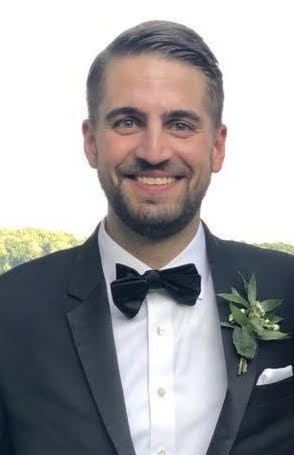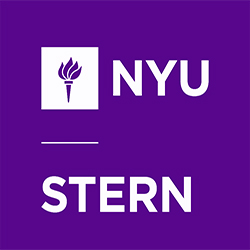 Arthur Heitz is an MBA2 specializing in Strategy and Entertainment, Media and Technology. In addition to serving as a Graduate Ambassador, he is also a VP of Academics and Case Competitions for the Entertainment, Media and Sports Association (EMSA) and a Teaching Fellow for Pr. Matthew Lee’s core Strategy. Arthur was born in Dayton, OH and graduated with a BA from Boston College in 2013. He spent the majority of his career pre-MBA in client services roles at GLG.
Arthur Heitz is an MBA2 specializing in Strategy and Entertainment, Media and Technology. In addition to serving as a Graduate Ambassador, he is also a VP of Academics and Case Competitions for the Entertainment, Media and Sports Association (EMSA) and a Teaching Fellow for Pr. Matthew Lee’s core Strategy. Arthur was born in Dayton, OH and graduated with a BA from Boston College in 2013. He spent the majority of his career pre-MBA in client services roles at GLG.
Most choose to pursue their MBA to progress in their career, but getting into business school can feel like a job all in of itself. You study for the GMAT, research schools, speak to alumni, attend presentations, update your resume, write essays and interview all in the hope you end up at a school that’s right for you. Then, what feels like immediately, you get to school and you reenact that process ALL OVER AGAIN: you recruit. You choose your industry(s) of interest, research firms, network, update your resume (even more), and interview all while taking in your class work. All told, upon eventually receiving an offer, it occurred to me I had spent nearly two whole years of my life preparing to become a consultant. I had spent so much time working to get the job, though, that I spent precious little time thinking about the job itself. And with the approach of my internship, it was time, I realized with a mixture of exhilaration and anxiety, to actually consult. Eager, excited and with undeniable nerves, I approached the first week of my internship this summer with a question I dared not ask out loud: So what does a consultant actually do?
Turns out, they do a lot of things. First and foremost, they do what their clients ask. Consulting is ultimately a service business so interacting with and advising clients is required. These are professionals, mind you, whom if they are not former consultants themselves have built a life in their industry or company. This makes learning as much as possible about your clients and their projects essential, both to instill confidence and reassure your client that they are in capable hands. You obviously cannot become an expert overnight, but consultants have a pithy phrase that describes the bar to which you must strive: “know enough to be dangerous.” Furthermore, it turns out those hours (read: days) ((read: weeks)) you spent practicing case studies for consulting interviews actually come in handy. Consulting is also about assessing situations in the moment and problem-solving on the fly. That could mean practicing effective time management, working in Excel or Powerpoint, or figuring out the story being told by a set of data. It could even mean navigating the mine-filled landscape of scheduling a meeting among stakeholders who have a total of zero common availability in a given week. Some problems take days to solve, others may take just minutes. Each day is invariably different in consulting, which can be exhilarating or harrowing, depending on the day.
Reading this, you may think I have reached a place of comfort in the role. More comfortable than when I started, certainly, but I still have a long way to go. Luckily, I work for an organization that understands my plight and is dedicated to supporting me. I was fortunate and humbled to receive an offer to intern at ZS Associates, a firm that works across industries but specializes in consulting for healthcare clients. Despite this focus, they work on as wide a breadth of project types as you would expect to encounter at other leading firms. They understand you are an intern, so try not to push you directly into the deep end. You’re brought onboard for a reason, though, and are given the opportunity to contribute directly to live project work. To help, ZS provides you with resources in the form of trainings, coaches and peer-buddies to help you wade slowly but surely into the oceanic waters of consulting. I’m learning that becoming a great consultant does not happen overnight, so am constantly reminding myself that improvement can come but one day at a time.
Consulting is, on one hand, a natural progression of everything I’ve learned during my career and at school. But on the other, it can be really, really hard. You could say something similar about business school, by the way. Ultimately, like getting into school or recruiting, I see it as another obstacle to overcome, another problem to solve. With some help, determination, and maybe a little bit of luck, I may just yet learn enough to be dangerous.
